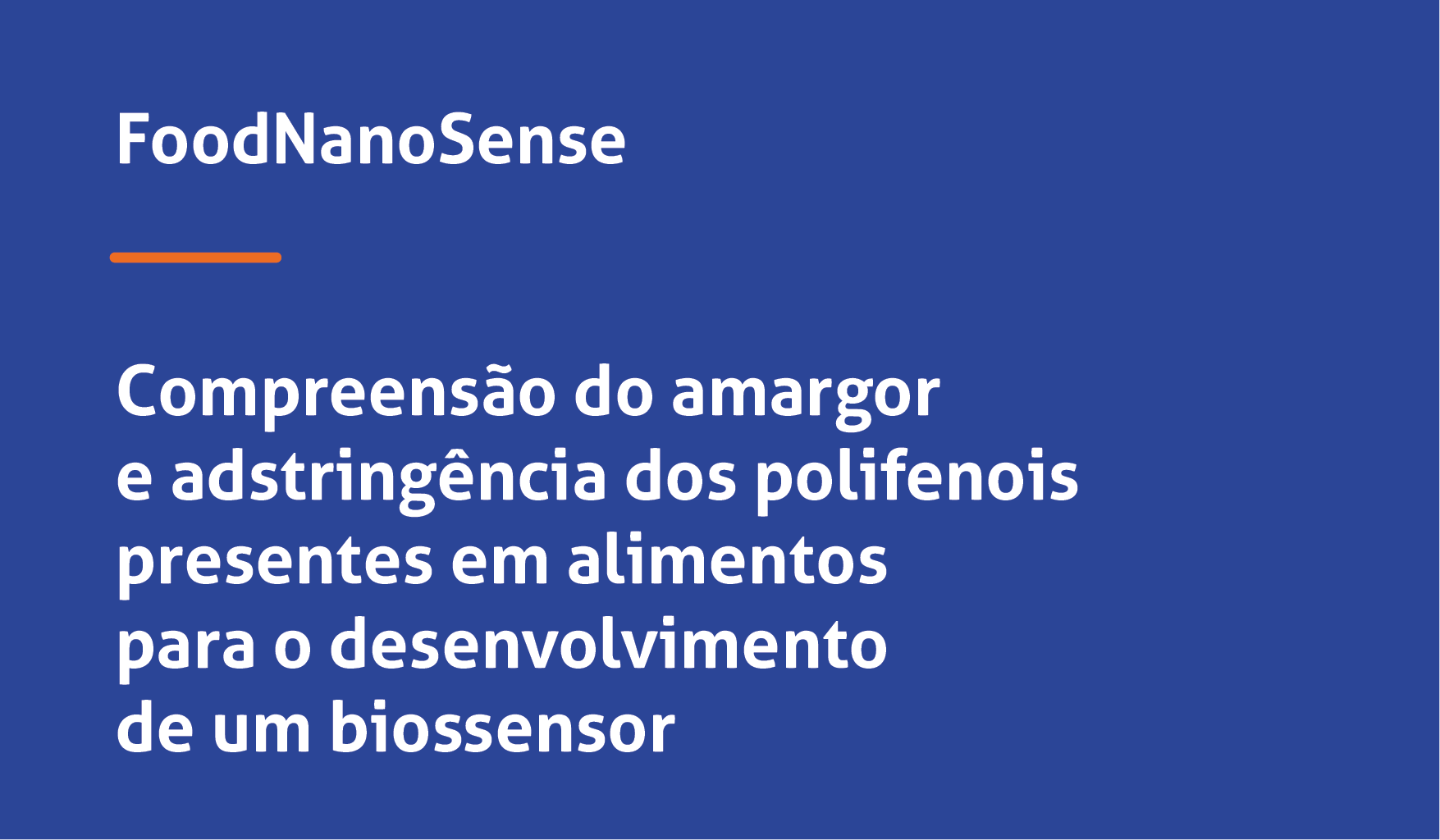Project Description
FoodNanoSense
FoodNanoSense aims to develop a biosensor that can detect acid flavours in products containing phenolic compounds (produced by plants and present in food of plant origin), having in mind the adaptation of such products during their production to make them more appealing.
With a global budget of 122 422 euros, of which near 40 thousand euros go to CINTESIS/BioMark-ISEP, funded bt the Portuguese Foundation for Science and Tehnology (FCT) and the European Regional Development Fund (FEDER), in the framework of the programme COMPETE, this project is led by the Faculty of Sciences of the University of Porto (FCUP). The Consortium is also constituted by the Dife German Institute of Human Nutrition and the company UNICER. The official completion of FoodNanoSense is scheduled for June 2019.
Abstract
Phenolic compounds (PC) have been designated as nutraceuticals of the century because of their health benefits, e.g. anticancer action and cardiovascular protection. PCs have the ability to interact with some proteins, including biological proteins, leading to various biological actions, e.g. reduction of digestibility of food by inhibition of digestive enzymes. These compounds are at the origin of some organoleptic properties of food products of plant origin, e.g. astringency and bitterness, which are desirable in certain products when perceived at balanced levels (e.g. tea, wine, coffee). Astringency is a tactile sensation of dryness, constriction and perceived roughness in the mouth, which is thought to be related to the precipitation of salivary proteins (SP) by PC. Bitterness is a flavor detected by activation of bitter taste receptors (TAS2Rs).
The PC concentration of fruits, red wine, etc. and the consequent perception of these sensory properties have to be adapted to please the consumer. As proposed by the H2020 program, research/innovation in this area should focus on the sustainability of food production and processing (recycling by-products of the Food Industry) while maintaining beneficial and nutritional properties.
Thus, the overall objective is to understand, at a molecular level, the perception of astringency and bitterness, to be able to modulate them with products already present in foods (e.g. carbohydrates) and/or natural processing (e.g., precipitation of reactive PC’s). Another objective is to develop an easy to use and accurate astringency biosensor, which can be utilize directly in production, based on the immobilization of SP to the surface of a nanomaterial. Although the project focuses on fundamental research, this knowledge will be the basis for the biosensor development.
To achieve these objectives, the team of this project is multidisciplinary, bringing together experienced researchers from different areas (CINTESIS BioMark, REQUIMTE, Sensor Research, German Institute of Human Nutrition (DIfE) and UNICER).
Funding Institution
FCT
Global Budget
122,422.00 €
CINTESIS Budget
39,504.00 €
CINTESIS researchers involved
Goreti Sales
Latest update: 31 December 2017

